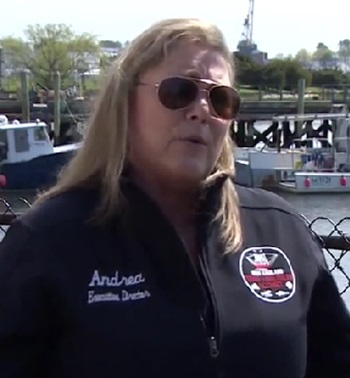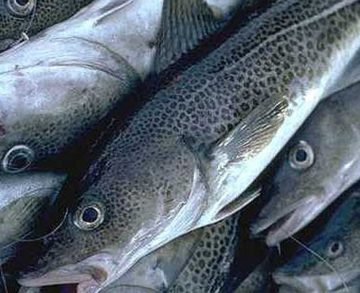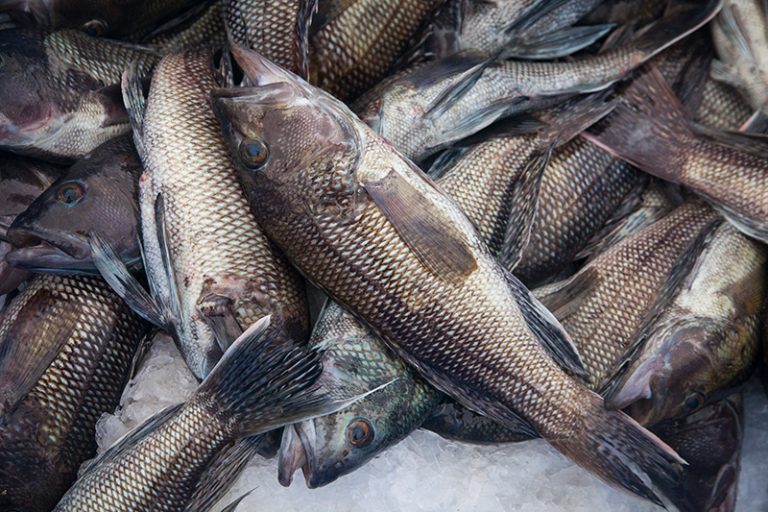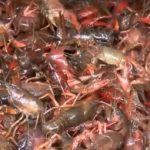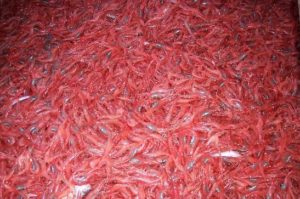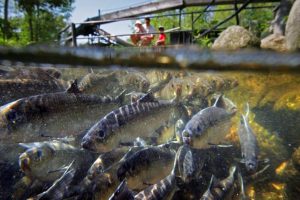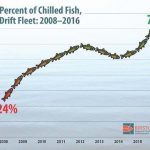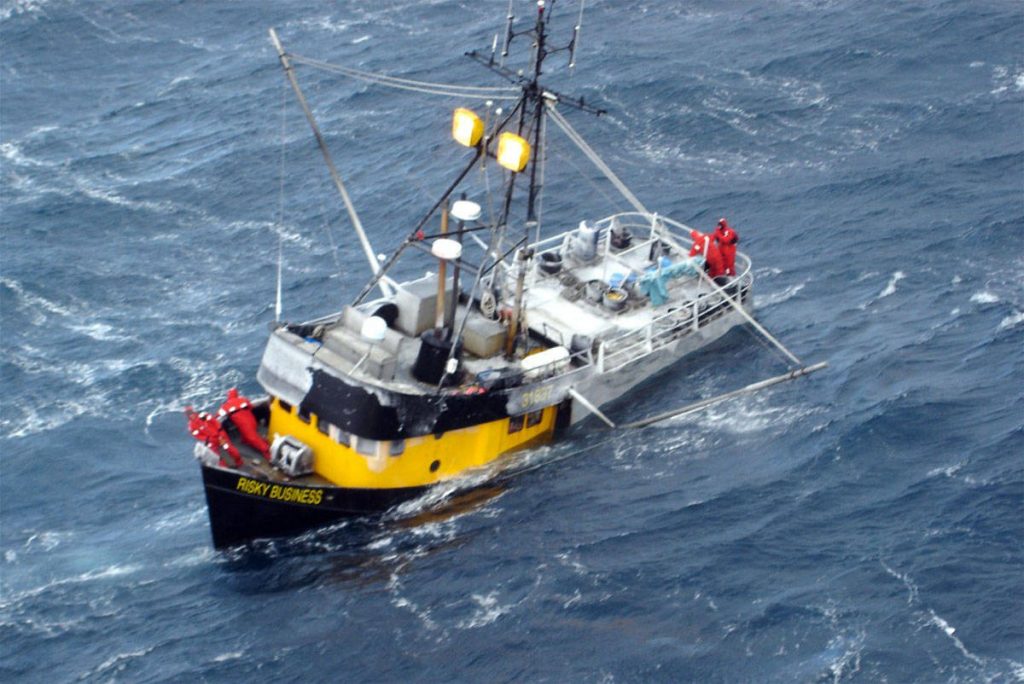Tag Archives: new england
Anti-offshore wind fishing group backed by right-wing money eyes support from Maine towns
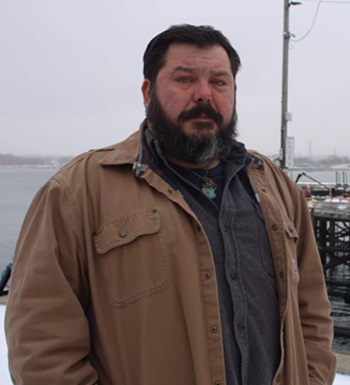 Since its founding three years ago, the New England Fishermen’s Stewardship Association has been a vocal opponent of offshore wind and relied on funding from a right-wing advocacy group connected to one of the most influential conservative activists in the U.S. Now, the fishermen’s organization known as NEFSA is looking to diversify its revenue sources by asking coastal communities in Maine for financial support. Jerry Leeman is the founder and CEO of NEFSA. And for the past three years he’s been the star of an advocacy campaign that’s led him up and down the northeast coast to preach against offshore wind. Leeman and NEFSA have been making some noise. more, >>CLICK TO READ<< 07:23
Since its founding three years ago, the New England Fishermen’s Stewardship Association has been a vocal opponent of offshore wind and relied on funding from a right-wing advocacy group connected to one of the most influential conservative activists in the U.S. Now, the fishermen’s organization known as NEFSA is looking to diversify its revenue sources by asking coastal communities in Maine for financial support. Jerry Leeman is the founder and CEO of NEFSA. And for the past three years he’s been the star of an advocacy campaign that’s led him up and down the northeast coast to preach against offshore wind. Leeman and NEFSA have been making some noise. more, >>CLICK TO READ<< 07:23

The American lobster’s baby bust
The Gulf of Maine is home to one of the most valuable fisheries in the United States. Every year, American lobsters (Homarus americanus) from the gulf fuel a multibillion-dollar industry, buoying fishing communities across New England and across the border into Atlantic Canada. The Gulf of Maine is also heating up faster than almost any other marine environment on Earth. In the gulf, rising water temperatures and shifting currents have already triggered shocking declines in other mainstay catches, such as northern shrimp, and put surprising new species in fish traps. Now, ongoing research led by Joshua Carloni, a marine biologist with the New Hampshire Fish and Game Department, shows a potentially dire situation brewing for the area’s most valuable species—the lobster. more, >>CLICK TO READ<< 08:36
Amid ongoing trade tensions, there’s still no timeline on N.L.’s Boston trade office
 A new trade office recently announced by Newfoundland and Labrador Premier Andrew Furey to strengthen commercial relations with New England still isn’t off the ground, as a trade war looms with the United States. Furey announced in September that the provincial government would open a trade office in Boston, located inside the city’s Canadian consulate. Last week, Fisheries Minister Gerry Byrne said the Boston office will play a key role in the province’s navigation of the current economic climate. “One of the key roles of the Boston office [is to] constantly, constantly engage U.S. consumers, U.S. business groups, U.S. congressmen, [U.S.] influencers … to get them to tell the White House that Trump’s decisions are hurting Americans,” Byrne said, appearing on a segment of VOCM’s Open Line. more, >>CLICK TO READ<< 08:29
A new trade office recently announced by Newfoundland and Labrador Premier Andrew Furey to strengthen commercial relations with New England still isn’t off the ground, as a trade war looms with the United States. Furey announced in September that the provincial government would open a trade office in Boston, located inside the city’s Canadian consulate. Last week, Fisheries Minister Gerry Byrne said the Boston office will play a key role in the province’s navigation of the current economic climate. “One of the key roles of the Boston office [is to] constantly, constantly engage U.S. consumers, U.S. business groups, U.S. congressmen, [U.S.] influencers … to get them to tell the White House that Trump’s decisions are hurting Americans,” Byrne said, appearing on a segment of VOCM’s Open Line. more, >>CLICK TO READ<< 08:29

New England scallopers face a tough 2025
New England scallopers are looking at another tough year in 2025, as they prepare for a set of federal regulations to protect both their livelihoods and the Atlantic Ocean’s scallop populations. If approved by NOAA Fisheries, the new rules, called Scallop Framework 39, will reduce the number of times that full-time vessels can go drag in some federally-managed scalloping grounds — called “access areas” — in the 2025 fishing year. But they will allow these vessels more time to scallop in the open ocean. The start of the access-area scalloping season will also be pushed back from April 1 to May 15, 2025. It will end on March 31, 2026. Local scallopers and industry representatives say the contents of Framework 39 are not a surprise. Landings have been shrinking over the past four years. “We’re just tightening the belt, and taking a deep breath, and riding the storm out,” said New Bedford scallop vessel manager and owner Tony Alvernaz. more, >>CLICK TO READ<< 17:50
States to announce Friday if New England is ready for more offshore wind farm
 The Captain Les Eldridge used to chase bass and tuna out of New Bedford. Now, the vessel has a new role in the nation’s emerging offshore wind industry. Anthes-Washburn said Coast Line Transfers lost a similar contract with another offshore wind farm last summer, during an industry wide contraction in the U.S. that saw planned wind farms scrapped up and down the East Coast. On Friday, Anthes-Washburn will find out if southern New England is ready to rebuild that pipeline of canceled offshore wind projects. Officials in Massachusetts, Rhode Island and Connecticut are expected to announce whether they are ready to move forward with a series of proposed offshore wind farms that developers submitted through a tri-state solicitation process in March. more, >>CLICK TO READ<< 09:52
The Captain Les Eldridge used to chase bass and tuna out of New Bedford. Now, the vessel has a new role in the nation’s emerging offshore wind industry. Anthes-Washburn said Coast Line Transfers lost a similar contract with another offshore wind farm last summer, during an industry wide contraction in the U.S. that saw planned wind farms scrapped up and down the East Coast. On Friday, Anthes-Washburn will find out if southern New England is ready to rebuild that pipeline of canceled offshore wind projects. Officials in Massachusetts, Rhode Island and Connecticut are expected to announce whether they are ready to move forward with a series of proposed offshore wind farms that developers submitted through a tri-state solicitation process in March. more, >>CLICK TO READ<< 09:52
Gulf of Maine lobsters are experiencing a housing crisis
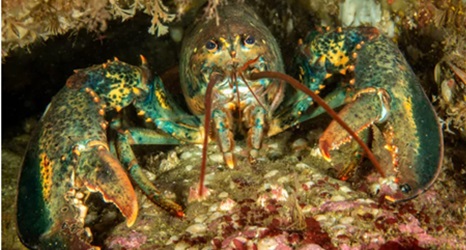 Lobster fishing has been a good business in the Gulf of Maine for a long time. With the exception of a few notable dips, both the landings and value of the catch have been on an upward swing for decades. Between 1984 and 2014, the lobster population in the Gulf of Maine jumped an estimated 515 percent, while simultaneously declining by 78 percent in southern New England as the water warmed in both regions. While it’s started to decline in recent years, numbers are still far higher than they were several decades ago. The result? A lobster housing crisis. “The warming sea temperatures have actually created a real sweet spot for lobster reproduction,” said Brian Skerry, a National Geographic photographer and producer on the recent GBH/PBS series Sea Change, which explores the impact of climate change on the Gulf of Maine. more, >>CLICK TO READ<< 17:51
Lobster fishing has been a good business in the Gulf of Maine for a long time. With the exception of a few notable dips, both the landings and value of the catch have been on an upward swing for decades. Between 1984 and 2014, the lobster population in the Gulf of Maine jumped an estimated 515 percent, while simultaneously declining by 78 percent in southern New England as the water warmed in both regions. While it’s started to decline in recent years, numbers are still far higher than they were several decades ago. The result? A lobster housing crisis. “The warming sea temperatures have actually created a real sweet spot for lobster reproduction,” said Brian Skerry, a National Geographic photographer and producer on the recent GBH/PBS series Sea Change, which explores the impact of climate change on the Gulf of Maine. more, >>CLICK TO READ<< 17:51
Lobster’s nightmare: Vicious Atlantic wolffish is one scary catch in the Gulf of Maine
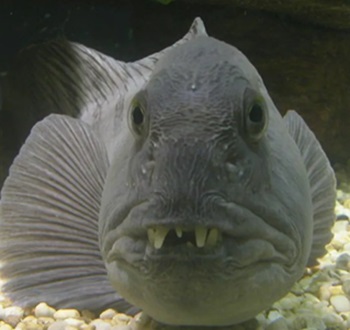 Atlantic wolffish are vicious looking. Their head is huge with gaping teeth that protrude from their lips both top and bottom, giving them a severe overbite. Their tail is tapered with long dorsal and anal fins, which give it a look of an eel. Beware to anyone trying to get a hook out of their mouth! These fish enjoy cold water and can be found throughout the Gulf of Maine to Labrador and down to the Great South Channel of Georges Bank in New England. Amazingly, they can survive in some of the coldest water by producing “antifreeze” proteins stored in their blood and livers. This keeps their blood from freezing under extreme conditions. Around age 5-6, they reach maturity and begin mating. It appears that wolffish are solitary animals except during the mating season, according to NOAA, which occurs in the Gulf of Maine during the fall. The wolffish find mates and remain together until the female lays her eggs. Lobsters beware! The teeth of the wolffish allow them to eat and crush almost anything they want, and what they want are lobsters. They have several rows of very sharp teeth. My husband, always a biologist, when he was fishing commercially regularly dissected the fish he caught to see what they had been eating. Twenty years ago, he opened a 20-pound wolffish and found 21 lobster tails and more body parts in its stomach! more, >>CLICK TO READ<< 14:20
Atlantic wolffish are vicious looking. Their head is huge with gaping teeth that protrude from their lips both top and bottom, giving them a severe overbite. Their tail is tapered with long dorsal and anal fins, which give it a look of an eel. Beware to anyone trying to get a hook out of their mouth! These fish enjoy cold water and can be found throughout the Gulf of Maine to Labrador and down to the Great South Channel of Georges Bank in New England. Amazingly, they can survive in some of the coldest water by producing “antifreeze” proteins stored in their blood and livers. This keeps their blood from freezing under extreme conditions. Around age 5-6, they reach maturity and begin mating. It appears that wolffish are solitary animals except during the mating season, according to NOAA, which occurs in the Gulf of Maine during the fall. The wolffish find mates and remain together until the female lays her eggs. Lobsters beware! The teeth of the wolffish allow them to eat and crush almost anything they want, and what they want are lobsters. They have several rows of very sharp teeth. My husband, always a biologist, when he was fishing commercially regularly dissected the fish he caught to see what they had been eating. Twenty years ago, he opened a 20-pound wolffish and found 21 lobster tails and more body parts in its stomach! more, >>CLICK TO READ<< 14:20
Over 200,000 people without power across New England as winter storm winds down. That’s where we were. No Power!
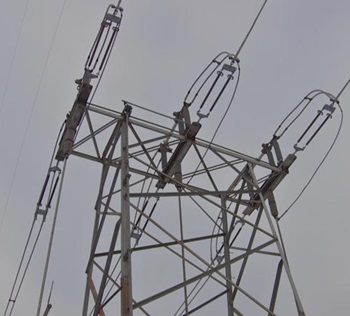 Hundreds of thousands were without power after a storm a winter storm brought snow and heavy rain through New England Saturday. Around 50,000 customers are without power on Sunday afternoon across New Hampshire as daylong snow and freezing rain swept the region on Saturday, according to Eversource. “Crews are out working hard to restore outages as they happen,” Robert Buxton, Director of the New Hampshire Department of Safety’s Division of Homeland Security and Emergency Management, said in a written statement. As of 1 p.m. on Sunday, over 170,000 are also experiencing power outages in Maine where a drop in evening temperatures has caused icy conditions, according to Central Maine Power. >>click to read<< 13:54
Hundreds of thousands were without power after a storm a winter storm brought snow and heavy rain through New England Saturday. Around 50,000 customers are without power on Sunday afternoon across New Hampshire as daylong snow and freezing rain swept the region on Saturday, according to Eversource. “Crews are out working hard to restore outages as they happen,” Robert Buxton, Director of the New Hampshire Department of Safety’s Division of Homeland Security and Emergency Management, said in a written statement. As of 1 p.m. on Sunday, over 170,000 are also experiencing power outages in Maine where a drop in evening temperatures has caused icy conditions, according to Central Maine Power. >>click to read<< 13:54
The Supreme Court can save working fishermen from Biden regulators
 The crew and I had been trawling the Gulf of Maine for several days aboard the F/V Teresa Maria IV, the commercial fishing vessel I captained for 14 years. I had only just settled into my bunk for a few hours of sleep. That’s when the rogue wave hit. Life at sea is never predictable. A promising forecast could give way at any time to a squall with heavy swells. Essential navigation components might break. On that night, circumstances coalesced such that a rogue wave knocked my boat clean over. We were capsized in the black of night. This unsettling experience was front of mind when my organization, the New England Fishermen’s Stewardship Association (NEFSA) filed an amicus brief in an upcoming Supreme Court case about the Biden administration’s power over the fishing industry. photos, more, >>click to read<< 06:46
The crew and I had been trawling the Gulf of Maine for several days aboard the F/V Teresa Maria IV, the commercial fishing vessel I captained for 14 years. I had only just settled into my bunk for a few hours of sleep. That’s when the rogue wave hit. Life at sea is never predictable. A promising forecast could give way at any time to a squall with heavy swells. Essential navigation components might break. On that night, circumstances coalesced such that a rogue wave knocked my boat clean over. We were capsized in the black of night. This unsettling experience was front of mind when my organization, the New England Fishermen’s Stewardship Association (NEFSA) filed an amicus brief in an upcoming Supreme Court case about the Biden administration’s power over the fishing industry. photos, more, >>click to read<< 06:46
Lobster prices rise as catches fall: ‘They’re all fighting for that product’
 The price of lobster is up compared to last year, says the Lobster Fishers of P.E.I. Marketing Board. Live lobster is selling for as much as $11.50 a pound, said Charlie McGeoghegan, chair of the board, up from $6.50 to $7.50 last year. The jump in price is partly because catches are down now for fishers in New England, Nova Scotia and New Brunswick, he said. Catches in New England specifically are down about 16 per cent over the five-year average, he said. photos, more, >>click to read<< 06:48
The price of lobster is up compared to last year, says the Lobster Fishers of P.E.I. Marketing Board. Live lobster is selling for as much as $11.50 a pound, said Charlie McGeoghegan, chair of the board, up from $6.50 to $7.50 last year. The jump in price is partly because catches are down now for fishers in New England, Nova Scotia and New Brunswick, he said. Catches in New England specifically are down about 16 per cent over the five-year average, he said. photos, more, >>click to read<< 06:48
New England’s decades-old shrimp fishery, a victim of climate change, to remain closed indefinitely
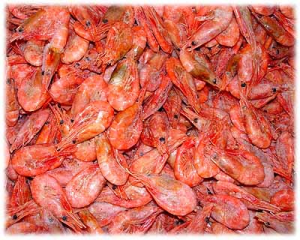 New England’s long-shuttered shrimp business, which fell victim to warming waters, will remain in a fishing moratorium indefinitely, fishery regulators ruled on Friday. The industry has been in a moratorium since 2013 in large part because environmental conditions off New England are unfavorable for the cold water-loving shrimp. That moratorium will remain in effect with no firm end date, a board of the regulatory Atlantic States Marine Fisheries Commission voted Friday. The board stopped short of calling the move a permanent moratorium because it included a provision to continue monitoring the shrimp population and consider reopening the fishery if the crustaceans approach a healthy level. Some U.S. fishermen have advocated trying to save New England’s shrimp fishery with new management approaches. Glen Libby, a former shrimp trawler, said regulators need to gather more data before taking drastic measures to close a historic fishery. more, >>click to read<< 14:20
New England’s long-shuttered shrimp business, which fell victim to warming waters, will remain in a fishing moratorium indefinitely, fishery regulators ruled on Friday. The industry has been in a moratorium since 2013 in large part because environmental conditions off New England are unfavorable for the cold water-loving shrimp. That moratorium will remain in effect with no firm end date, a board of the regulatory Atlantic States Marine Fisheries Commission voted Friday. The board stopped short of calling the move a permanent moratorium because it included a provision to continue monitoring the shrimp population and consider reopening the fishery if the crustaceans approach a healthy level. Some U.S. fishermen have advocated trying to save New England’s shrimp fishery with new management approaches. Glen Libby, a former shrimp trawler, said regulators need to gather more data before taking drastic measures to close a historic fishery. more, >>click to read<< 14:20

National mental health campaign targets commercial fishermen
The commercial fishing industry is known for its grueling work conditions and unpredictable nature, which can take a toll on the mental health of fishermen. However, despite the evident need, the industry has historically been underserved in terms of mental health care resources. Recently, the Maine Coast Fishermen’s Association and Northeast Center for Occupational Safety and Health teamed up to work with Man Therapy to create a campaign specifically targeting commercial fishermen. Man Therapy is an innovative approach that uses humor and relatable content to raise awareness about mental health care and provide resources for fishermen, according to a press release.>>click to read<< 09:45
Delano: Biden administration won’t leave lobstermen alone
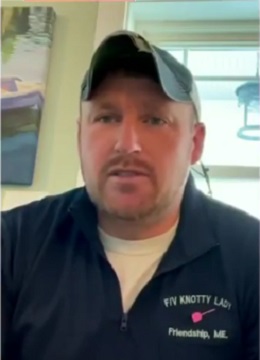 Lawmakers and a federal appeals court last year defeated a federal plan to save endangered whales by eradicating New England’s lobster industry. With those plans undone, the National Oceanic and Atmospheric Administration (NOAA) is crafting a workaround scheme to regulate lobstermen out of the fishery. Recent years have been brutal going for lobstermen, such that the survival of our trade is highly uncertain. Lobstermen are at once negotiating higher fuel costs, higher bait costs, higher shipping costs, and an agitation campaign from dark money nonprofits trained on major buyers of Maine lobster products. NOAA’s new regulatory plan is poised to decimate our inventory. >>click to read<< 09:18
Lawmakers and a federal appeals court last year defeated a federal plan to save endangered whales by eradicating New England’s lobster industry. With those plans undone, the National Oceanic and Atmospheric Administration (NOAA) is crafting a workaround scheme to regulate lobstermen out of the fishery. Recent years have been brutal going for lobstermen, such that the survival of our trade is highly uncertain. Lobstermen are at once negotiating higher fuel costs, higher bait costs, higher shipping costs, and an agitation campaign from dark money nonprofits trained on major buyers of Maine lobster products. NOAA’s new regulatory plan is poised to decimate our inventory. >>click to read<< 09:18
Biden admin’s new rule could put pinch on lobster fishermen while letting others off the hook: critics say
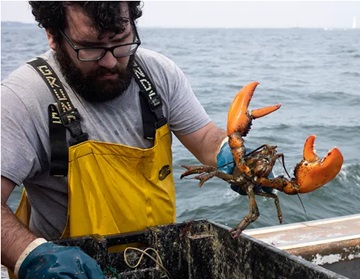 The National Oceanic and Atmospheric Administration is planning to enact a new federal rule under the Marine Mammal Protection Act – which would expand an existing restricted area off the coast of Maine where lobster fishing is already banned for three months each year. The move would cut the lobstermen’s’ business by at least 25% of the already declining industry, critics say. The plans come as an attempt to protect the endangered North Atlantic Right Whale, but a group of fishermen say the agency have no data to support the tightening restrictions. They also claim the federal agency is playing favorites by greenlighting offshore wind developments even though recent studies show can be harmful to marine life. “The federal government treats foreign offshore wind developers much better than lobstermen. The corporations have official authorization to disturb and displace marine life. Working lobstermen aren’t as lucky as our friends,” Video, >>click to read<< 07:55
The National Oceanic and Atmospheric Administration is planning to enact a new federal rule under the Marine Mammal Protection Act – which would expand an existing restricted area off the coast of Maine where lobster fishing is already banned for three months each year. The move would cut the lobstermen’s’ business by at least 25% of the already declining industry, critics say. The plans come as an attempt to protect the endangered North Atlantic Right Whale, but a group of fishermen say the agency have no data to support the tightening restrictions. They also claim the federal agency is playing favorites by greenlighting offshore wind developments even though recent studies show can be harmful to marine life. “The federal government treats foreign offshore wind developers much better than lobstermen. The corporations have official authorization to disturb and displace marine life. Working lobstermen aren’t as lucky as our friends,” Video, >>click to read<< 07:55

NE Fishery Management Council welcomes aboard Jackie Odell
The new face on the New England Fishery Management Council is no stranger to a group that advises on policy related to the region’s vital fisheries. That face belongs to Jacqueline “Jackie” Odell, who has been a longtime advocate and thought leader for the fishing industry as the two-decade executive director of the Northeast Seafood Coalition at 1 Blackburn Center. Odell was welcomed aboard the Newburyport-based council as it opened its latest meeting in Plymouth on Monday. She was administered the oath of office by NOAA Fisheries Regional Administrator Mike Pentony along with three members who were reappointed: John Pappalardo of Massachusetts, Daniel Salerno of New Hampshire, and Alan Tracy of Maine. Odell was appointed to her first three-year term to an at-large seat with the term running through Aug. 10, 2026. >>click to read<< 07:57
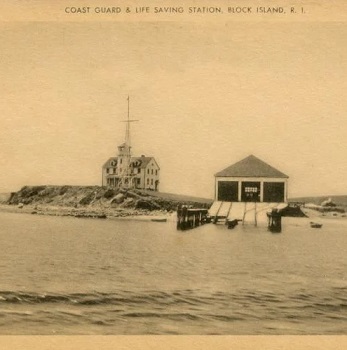
The afternoon during World War II when they made a ‘Beeline for Block Island’
Encounters with unexploded ordinance from World War II is not limited to Europe or decades after the conflict. The waters around Block Island in the spring of 1945 proved this latter point. While the war in Europe was winding down, three fishermen were killed off the southeastern shore of Block Island. These three fishermen were all over the age of 30, which of course resulted from the war taking any of the younger fishermen away to the far corners of the world. As result, a trawler out of Stonington accidentally bringing up an unexploded 550-pound bomb that rested on the ocean bottom some eight miles from Block Island, would not only take three lives but caused 11 children to be fatherless. World War II stands out in the history of human conflict for two main reasons. First, of course, is the unprecedented scale of the conflict, in terms of weapons used, nations involved, and lives lost. Second, and less understood, was the high percentage of civilians killed in the war. This would include the three Stonington fishermen. >>click to read<< 10:48
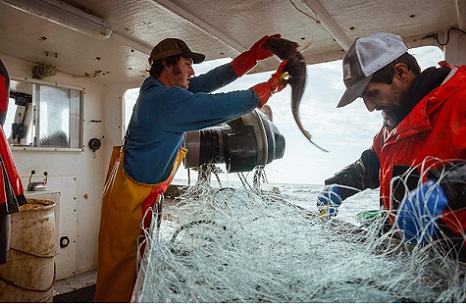
Experts fear American fishing industry, boating at risk as Biden prioritizes climate, green energy
The Biden administration has prioritized green energy at the expense of endangered whales and the U.S. fishing industry with regulation that limits both commercial fishing and recreational boating, according to experts. As they are imposing more regulations, they are also promoting offshore wind, which is actually harming commercial and recreational boating and potentially killing whales, Brady and Lapp said. “They positioned us as being these evildoers and now, 20 years later, whales are dropping dead like pigeons in Manhattan,” Brady said. “Here commercial fishermen and coastal communities are at the front line of fighting to protect the ocean itself, and we have crickets from virtually every NGO.” Video, >>click to read<< 09:09
NOAA Fish Surveys: A way to improve – Capt. Sam Novello
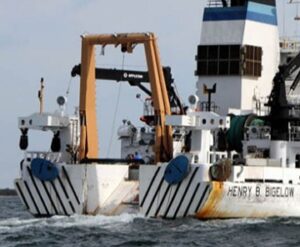 First, you need the net, then a set of doors capable of spreading, the net and ground wire, and bridles connected to the net. The angle of attack should be at 15 degrees, this angle is best for catching flounders, cod and haddock. The lower of the angle will catch more flounders. This is the reason why R/V Bigelow did an inadequate job of catching flounders & codfish, (overspreading the net) The best net will not fish properly if the doors are not synchronized with the net. People are talking about a new net for fish surveys, which means more research is needed, more time lost and more money wasted. >click to read< 13:30
First, you need the net, then a set of doors capable of spreading, the net and ground wire, and bridles connected to the net. The angle of attack should be at 15 degrees, this angle is best for catching flounders, cod and haddock. The lower of the angle will catch more flounders. This is the reason why R/V Bigelow did an inadequate job of catching flounders & codfish, (overspreading the net) The best net will not fish properly if the doors are not synchronized with the net. People are talking about a new net for fish surveys, which means more research is needed, more time lost and more money wasted. >click to read< 13:30
How Stellwagen Bank came to be named
 Once upon a time there was a man named Henry Stellwagen. We know that time was the mid-1800s, and Henry served in the United States Navy. We invoke good old Henry Stellwagen because a swath of nearby water is named after him; Stellwagen Bank. Fishermen had long known about shallow grounds beyond the tip of Cape Cod, stretching roughly north and west toward Gloucester. Geologists will tell you that this arc from Provincetown to Cape Ann was dry land thousands of years ago, when sea level was much lower. Like many places where the bottom rapidly rises, currents and upwells create a fertile mix, attracting fish from tiny to huge which in turn attract fishermen from across New England. But this place had never been charted. >click to read< 11:39
Once upon a time there was a man named Henry Stellwagen. We know that time was the mid-1800s, and Henry served in the United States Navy. We invoke good old Henry Stellwagen because a swath of nearby water is named after him; Stellwagen Bank. Fishermen had long known about shallow grounds beyond the tip of Cape Cod, stretching roughly north and west toward Gloucester. Geologists will tell you that this arc from Provincetown to Cape Ann was dry land thousands of years ago, when sea level was much lower. Like many places where the bottom rapidly rises, currents and upwells create a fertile mix, attracting fish from tiny to huge which in turn attract fishermen from across New England. But this place had never been charted. >click to read< 11:39
Herring disaster funds should be used to phase out harmful trawling
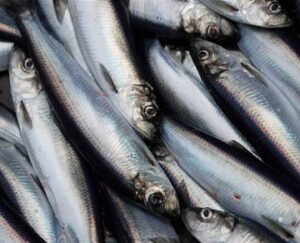 The Atlantic States Marine Fisheries Commission is releasing $11 million in disaster relief funds to Atlantic herring harvesters, of which $7 million will go to Maine. These funds should be used to phase out herring trawling by buying back fishing permits in an effort to increase herring stocks and to protect other marine life. U.S. Atlantic herring landings in the 2000s averaged 206 million pounds annually but have since decreased to below 22 million pounds in 2020 and 2021. The New England Fishery Management Council led a process to craft a 10-year rebuilding plan. This dramatic downturn in herring is likely because variables with climate change are reducing ocean productivity resulting in seven consecutive years of low numbers of young fish surviving to maturity. >click to read< 12:58
The Atlantic States Marine Fisheries Commission is releasing $11 million in disaster relief funds to Atlantic herring harvesters, of which $7 million will go to Maine. These funds should be used to phase out herring trawling by buying back fishing permits in an effort to increase herring stocks and to protect other marine life. U.S. Atlantic herring landings in the 2000s averaged 206 million pounds annually but have since decreased to below 22 million pounds in 2020 and 2021. The New England Fishery Management Council led a process to craft a 10-year rebuilding plan. This dramatic downturn in herring is likely because variables with climate change are reducing ocean productivity resulting in seven consecutive years of low numbers of young fish surviving to maturity. >click to read< 12:58
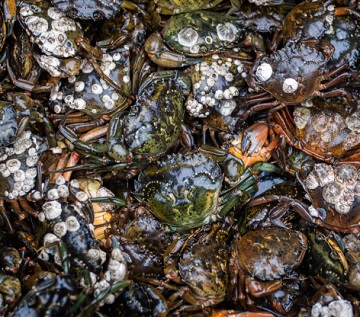
Crab ice cream, anyone? How we might be able to eat our way out of an invasive green crab problem
They’re tiny and they’re wreaking havoc on our coasts, but they also taste pretty good. European green crabs have posed a problem off the coast of Vancouver Island for decades now, and while current conservation efforts have focused on deep freezing them and throwing them in a landfill, some suggest eating them instead. The species, which is found across the Pacific Northwest is aggressive and feeds voraciously on shellfish; they have no natural predators, and they reproduce at a high rate. Each female can have up to 185,000 babies at a time. It’s not just a West Coast problem. Fisheries and Oceans Canada notes that the species, which originally came from Europe and North Africa and likely hitched a ride to North America on wooden ships in the early 19th century, first invaded east coast waters in the 1950s. >click to read< 09:50
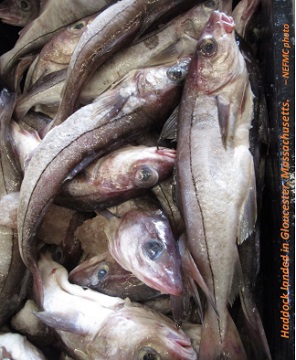
Haddock quotas for fishermen have been drastically cut. What does that mean for haddock eaters?
There is a haddock problem swimming around Gulf of Maine waters. But don’t blame the problem on fishermen catching too many haddock, say Maine commercial fishing advocates like Ben Martens, executive director of the Maine Coast Fishermen’s Association. In fact, they have been fishing in accordance with mandated quotas for decades, he said, regulatory measures that have returned the haddock stocks in the Gulf of Maine to sustainable levels. The problem, rather, is grounded in inaccurate accounting of the boom-and-bust cycles of haddock biomass, that is, how many fish are swimming in the Gulf of Maine at any given time. In April, the New England Fishery Management Council, a regional body that uses industry and scientific data to recommend quotas that restrict how many metric tons of regulated species Maine fishermen can haul in each year, announced a cut in haddock quotas. It represents an 80 percent reduction in allowable catch; the new season began on May 1. >click to read< 08:50

We’re Being Regulated Out of Business, New England Fishermen Say
“The New England fishermen are the most regulated fishermen in the world,” Jerry Leeman says. Leeman has been fishing in Maine his entire life. His father, grandfather, and great-grandfather were all fishermen. Federal regulations have now reduced the amount of haddock landings for commercial fishermen by more than 80%, Leeman said. The reduction in fish that fishermen are allowed to catch and “offshore wind development,” which is taking over “just under 10 million acres” of ocean, prompted Leeman, along with fisherman Dustin Delano, to create the New England Fishermen’s Stewardship Association to advocate for the region’s fishermen. Video, listen to the podcast >click to read< 07:55

Haddock stock decline prompts catch limits
A low New England haddock stock has prompted regulators to cut the fishing quota of one of the region’s most popular fish. A staple in fish and chips and for fish burgers and home cooks, the amount available from the Gulf of Maine and Georges Bank for 2023 will be more than 80 percent less than the previous year. Prices are relatively high for shoppers, too, with Hannaford, Shaw’s and local fish dealers asking anywhere from $11.99 to $14.99 per pound this month for wild caught Gulf of Maine haddock. Haddock is “subject to overfishing” in the Gulf of Maine while the Georges Bank stock is not, according to NOAA Fisheries. >click to read< 19:02
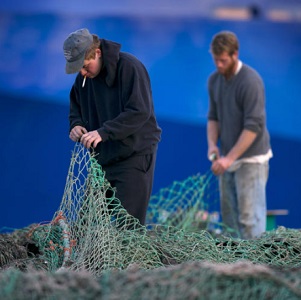
NEFMC asking NOAA to increase catch limit for haddock in Gulf of Maine to protect fishermen
In a statement issued April 20, the New England Fishery Management Council, which oversees fishing issues for the region, said the catch limit for the season that began May 1 is 1,936 metric tons, an 84 percent drop from last year. But now the council wants to give fishermen a reprieve, citing a rebound in haddock stock and after hearing concerns at the panel’s meeting last month in Mystic, Conn. “Fishermen have been encountering Gulf of Maine haddock at very high catch rates,” the council said, adding that several fishermen voiced concern “that an early shutdown of the fishery was highly likely and would have wide-ranging impacts.” “Even without targeting haddock, fishermen need haddock quota to account for bycatch while harvesting other species,” the council said. >click to read< 09:43
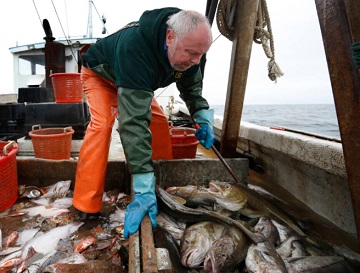
Mega Cut: Haddock, a staple Atlantic fish, is in decline off New England, regulators say
A recent scientific assessment found that the Gulf of Maine haddock stock declined unexpectedly, and that meant the catch quotas for the fish were unsustainably high, federal fishing managers said. “We seem to find plenty, but they can’t,” said Terry Alexander, a Maine-based fisher who targets haddock and other species. “It’s a disaster is what it is. A total, complete disaster.” The fishery management council mandated the 84% reduction in catch quotas for the current fishing year, which started May 1. The change applies to fishers who harvest haddock from the Gulf of Maine, a body of water off Massachusetts, New Hampshire and Maine. Fishers also harvest from Georges Bank, a fishing ground to the east where quotas were also reduced for this year, including adjoining areas overseen by Canadian officials who issued their own major cuts. >click to read< 08:02
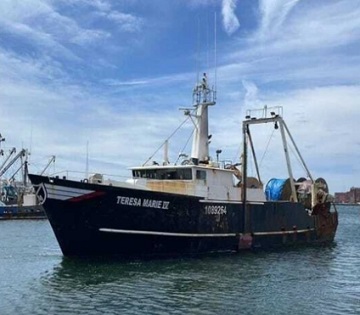
Environmental Regulations and Wind Turbines Are Backing New England Fishermen into a Corner
Just three weeks ago, Jerry Leeman was a commercial fishing captain in New England and a very successful one at that. Now, as executive director of the newly formed New England Fishermen Stewardship Association, he’s leading the charge against Biden administration policies that threaten the industry he loves, including overregulation and wind-turbine development in the Gulf of Maine. Leeman said that he and fellow New England fishermen have serious concerns about the accuracy of the NOAA data. Fish-population assessments fell to the wayside during the Covid years — 2021 and 2022 — and the data-collection process has not yet been corrected. “Whether you’re a lobsterman or a ground fisherman, a trend up and down the coast here is that nobody wants wind turbines placed in our environment. It’s going to mess up our stocks and our species. Not to mention it’s going to change the viability for generations to come in the fishing grounds,” Leeman said. Photos, >click to read< 07:51
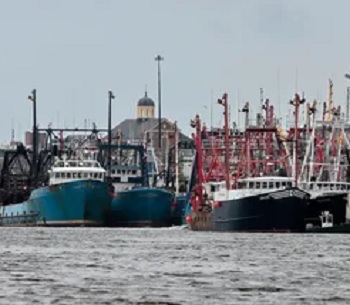
Profitable Port of New Bedford draws IRS scrutiny of tax evading fishermen
As the nation’s number one commercial fishing port, New Bedford is very much on the radar. “The statistics we have cover the six New England states but really the fishing industry is significant in Rhode Island, Maine and Massachusetts, with, of course, New Bedford being the most valuable port not only in New England but in the United States,” said IRS Criminal Investigation Supervisory Special Agent Matthew Amsden. Seven New England fishermen, including three from New Bedford and one from Fall River, were charged last month with tax evasion and failing to file returns. The other three indicted were from Rhode Island, according to a press release from the IRS Criminal Investigation unit. >click to read< 07:40






